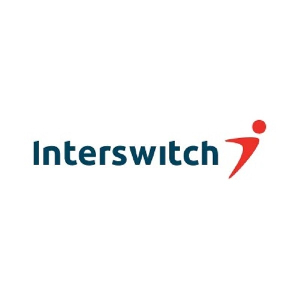Only a couple of days ago, Fitch Ratings released its credit ratings for Nigeria, placing Nigeria at a “B” rating. For many who may not understand, a Fitch “B” rating signifies a degrading financial situation and highly speculative financial market in the country in question.
Fitch carries out sovereign credit ratings to determine a country’s ability to meet its debt obligations. Its ratings equally help to provide investors with insight into the level of risk associated with investing in a particular country. What a “B” rating does for Nigeria is signal to investors that risk levels are high, which in turn makes them either take their funds to less speculative markets or require excessive risk protection when investing in Nigeria. Consequently, the cost of funding government projects increases.
About a day before the rating was released, Nigeria’s Federal Executive Council approved $1.5 billion for the rehabilitation of the Port Harcourt refinery, a refinery that was part of the trio on which the NNPC spent $396.33 million between 2013 and 2017, with no apparent result achieved. In 2019, the refineries were also reported to have lost N167 billion in a consecutive 9-month period, with Port Harcourt refinery alone losing N33.31 billion as it idled away for at least 7 months.
The confusion surrounding the means by which this proposed rehabilitation would be funded, is worrying.
“The end result will look more like the NLNG model with clear involvement from the private sector. This is not just another promise.”
He further acknowledged during an interview on Arise TV, that the government had failed at making the refineries work over the past 25 years and with respect to the Port Harcourt refinery, admitted that the NNPC knows that “the problem is securing financing.”
In mid-February this year, the Federal Government proposed selling off at least 34 national assets including the refineries, to raise money to finance the budget, an unsurprising move since the country was to spend at least 24% of its 2021 N13.5trn ($35.7bn) budget on debt servicing.
It was also going to raise an additional N4.28trn in new borrowings to fund the budget, pushing its public debt to about N35trn over a four-year period, which the Minister of Finance, Budget and National Planning, Zainab Ahmed, recently revealed will hit N38trn by December 2021.
Strangely, the same government has approved $1.5 billion that it undoubtedly cannot afford, to fund a project that it has consistently failed at. With an existing deficit in the budget, there is no doubt that the funding for this project will come from more borrowing, either domestic or foreign.
The problem with either of these borrowings is that they sink Nigeria further down a rabbit hole. With excessive domestic borrowing, there is a danger that the Central Bank of Nigeria (CBN) may be unable to curtail inflation if the pattern continues.
Fitch, in its most recent rating, expressed concern about this, noting that the government had borrowed up to N13.2 trillion from the CBN between 2015 and 2020, constituting 8.6% of the country’s GDP. Also, excessive foreign borrowing and unsustainable debt servicing from internally generated revenue will raise macro-economic risks significantly.
Deciding to spend $1.5billion to rehabilitate a refinery that has sunk so much money – whether in corruption and embezzlement or actual spending – without any meaningful achievement, is certainly a step in the wrong direction.
Former Vice President, Atiku Abubakar, has referred to the government’s decision as “an unwise use of scarce funds.” It is particularly distressing because when such funds are allocated to an infrastructure for which prior monies spent have not been accounted for, the possibility for mismanagement is high.
With the allocation for total debt servicing in the 2021 budget amounting to more than the sum of the allocations to education and healthcare, Nigeria is taking from its critical sectors to fund its irresponsibility
No surprise Fitch ratings highlighted that the rating for Nigeria is constrained by “particularly weak fiscal revenue, comparatively low governance and development indicators, high dependence on hydrocarbons and continued weak growth and high inflation.”
A public-private partnership is what the refinery needs – A Build-Operate-Transfer (BOT) model will suffice, as the country will take on no debt, but be able to benefit from private sector financing and experience.
Floating an Incorporated Joint Venture to manage the refinery with private sector participation and a sturdy corporate governance framework is also a viable alternative not just for the Port Harcourt refinery, but other energy infrastructure in the country.
While doing this, the country should work tenaciously to diversify its revenue base, obliterate irrational spending habits like the Port Harcourt refinery allocation and move away from hydrocarbon dependence, while seeking to unify the multiple exchange windows.
Business News of Wednesday, 24 March 2021
Source: nairametrics.com













